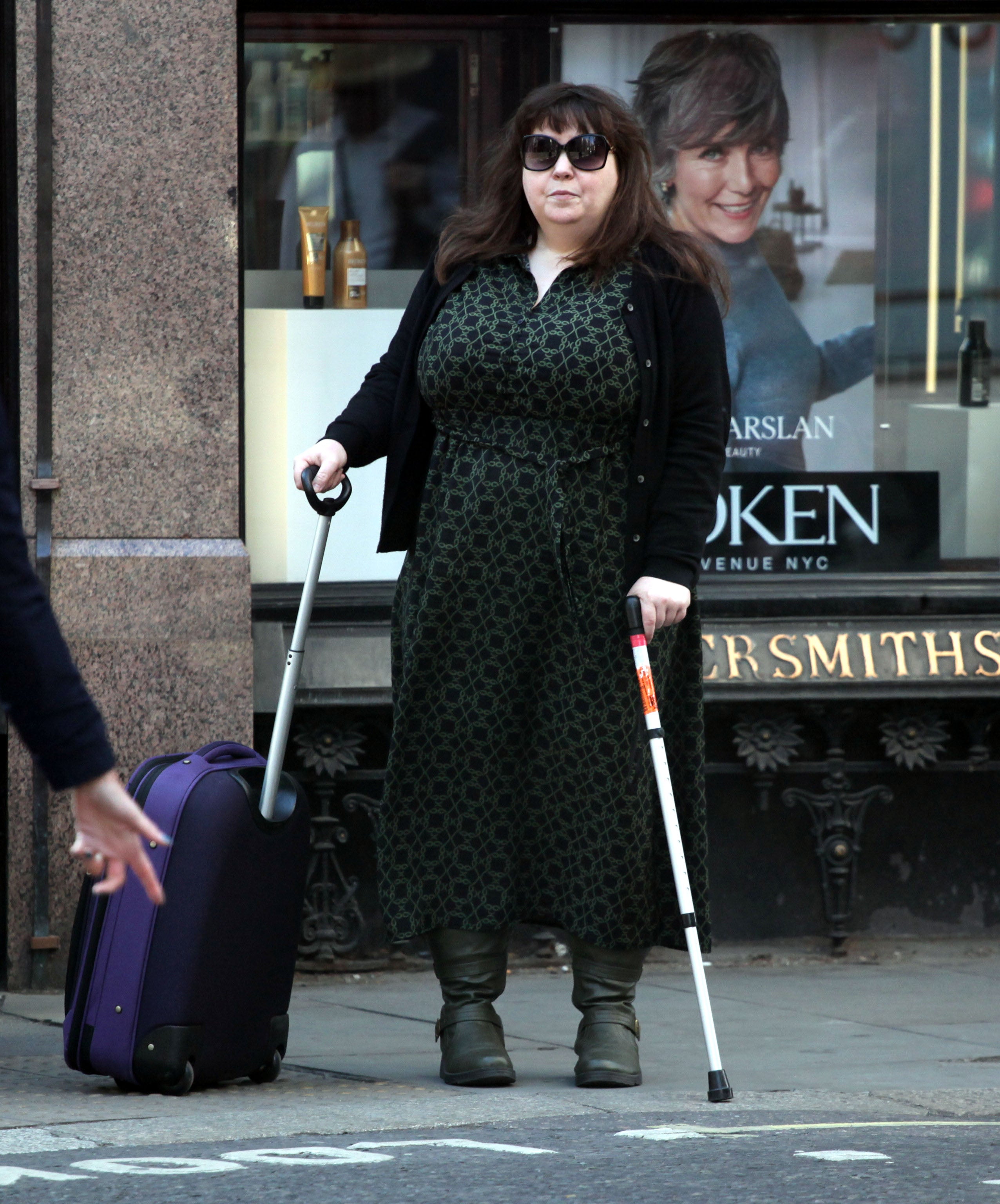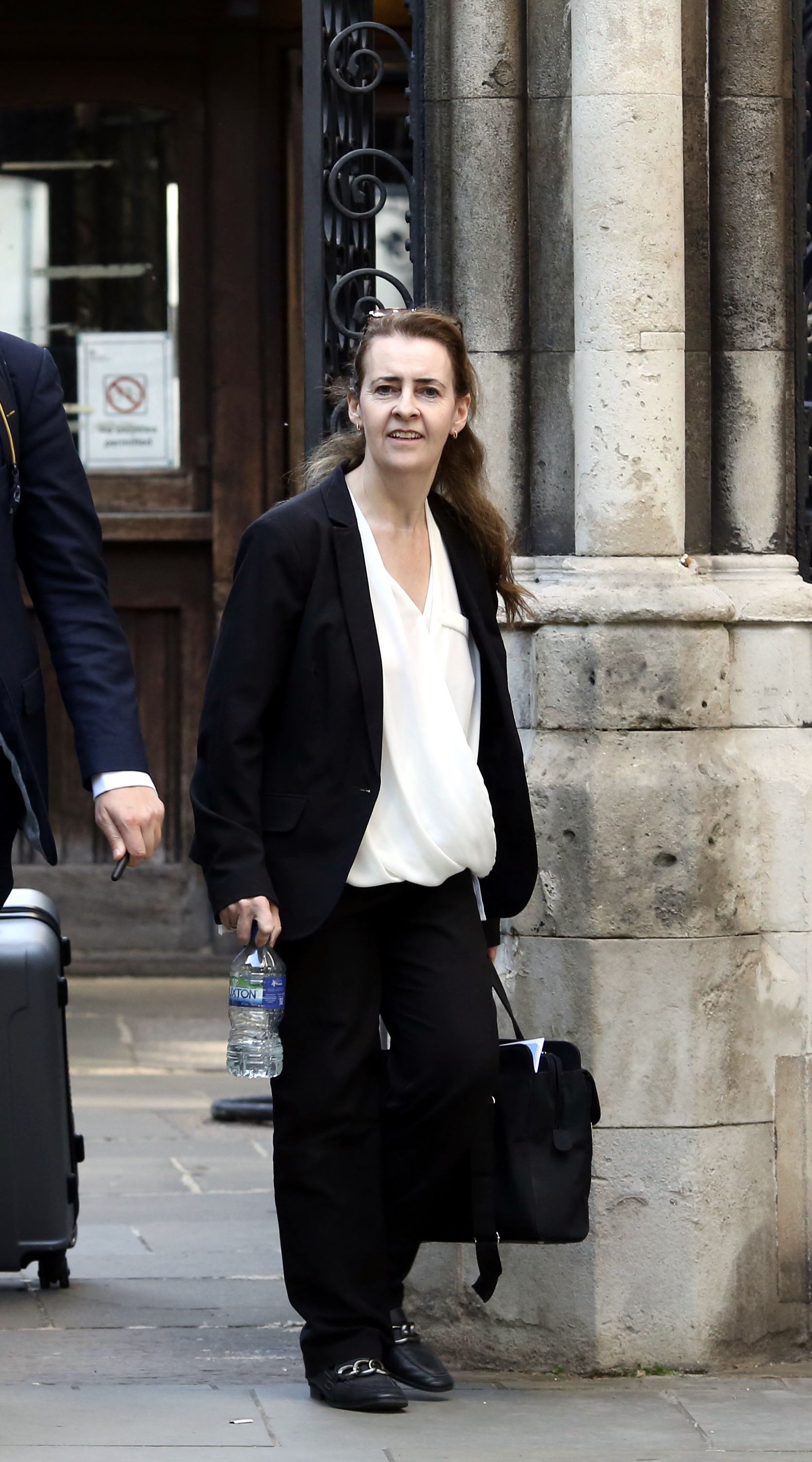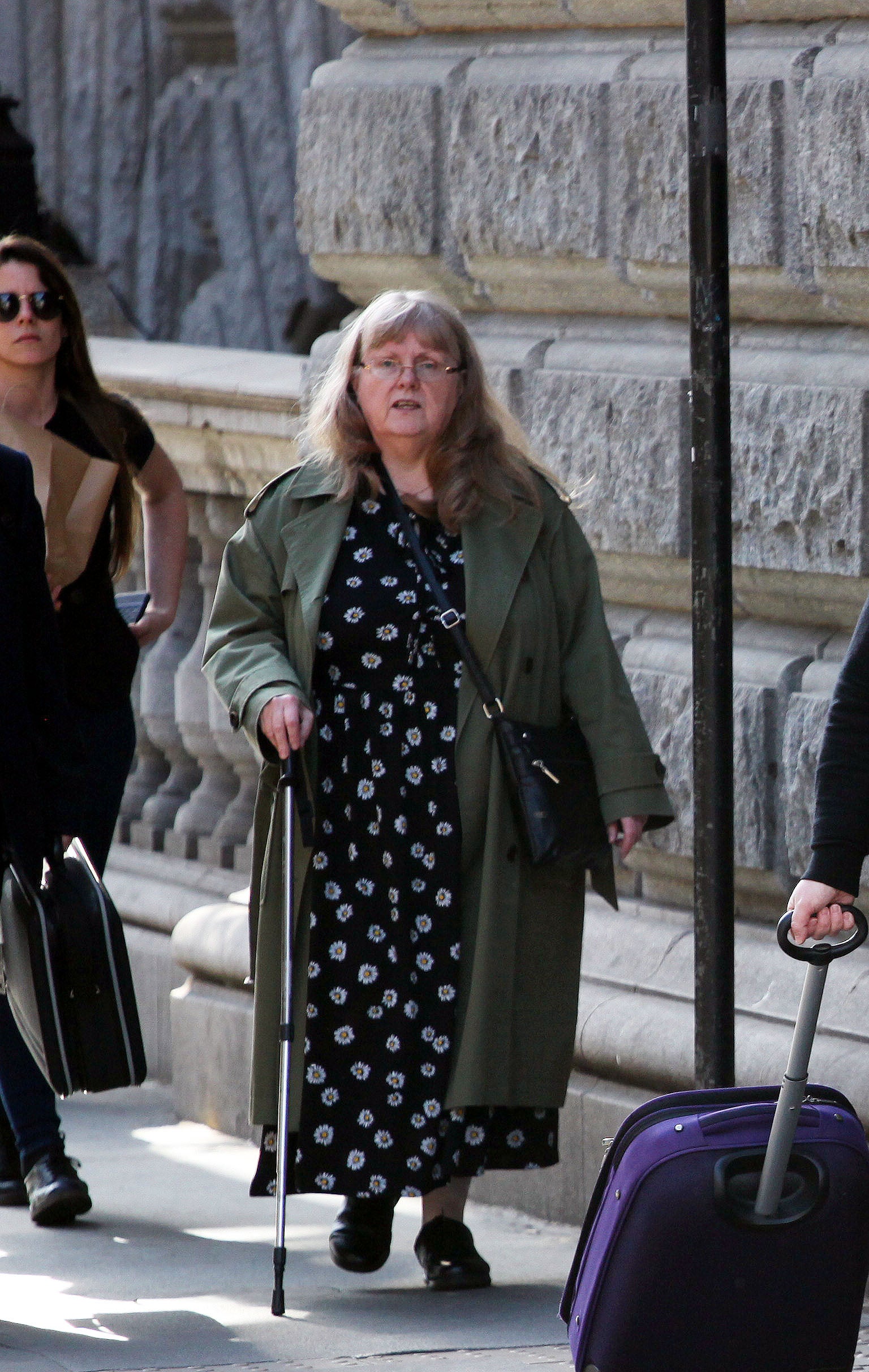An alternative therapist is locked in a court fight after her “sensitive” younger sister told her she can’t have her inheritance as she needs their mum’s £420,000 house for her and her emotional support dogs to live in.
Agnes Duggan died in August 2018, aged 78, leaving her home to be split equally in her will between her three daughters, Sharon, Ann and Brenda Duggan.
The house in Crawley, Sussex, where she had lived with Sharon, her youngest daughter and carer in her final years, made up almost all the value of her estate.
But now Sharon, 49, is blocking alternative therapist Brenda, 55, and oldest sister Ann, 60, from getting their share of their mum’s estate, claiming she needs to stay in the house for life with her therapeutic pets, as she is too “noise sensitive” to live in a flat.
She says that her needs and those of her two rescue dogs – which she told Central London County Court “help with her mental and emotional wellbeing” – outweigh the rights of her sisters to get the inheritance they are due and that they should only get a “small lump sum” each, which she could raise with a mortgage.
Sharon is now suing her two sisters under the 1975 Inheritance Act, claiming “reasonable provision” above her one-third share of her mum’s money on the basis that her special sensitivity and medical ailments mean she should get the whole house for life.

But Brenda, who formerly ran a bioresonance therapy company and a business providing gluten-free altar bread to food-intolerant Catholics, is fighting her claim, insisting Sharon and her pets will be fine in a one-bed flat.
Former NHS medical secretary Sharon, representing herself in court, told Judge Alan Johns KC that she should have the right to stay put in the family home in Lyndhurst Close, Southgate, Crawley, where she moved in 2014 and cared for her mum in her last dementia-plagued years.
Sharon, who lives on benefits, told the court she is “dyslexic and suffers from a variety of health issues, including chronic fatigue syndrome, migraine, fibromyalgia, depression, anxiety, insomnia, PTSD, and adjustment disorder [and] also has long Covid”.
Her sister, Brenda, has suggested she could relocate to a flat using her stake from the inheritance, but in court, Sharon rejected this as totally unsuitable due to intrusive noise, her history of fragile mental health and the effect on her two dogs.
In her written arguments, Sharon told the judge: “The claimant avers that psychologically she could not cope with living in a flat again.
“She is anxious that neighbours may cause disturbances and impact upon her ability to sleep and exacerbate her insomnia, of which she has previous experience, even having soundproofing installed in her apartment, which did little to mitigate noise.
“The claimant now has two rescue dogs, which help with her mental and emotional wellbeing, but which make finding suitable alternative accommodation difficult.
“If the claimant received a lump sum, it would not likely be enough to buy a one- to two-bedroom house in the local area and she would need to move far away from her support network, which she relies on greatly for her health issues.
“The claimant maintains that moving from the property would affect her mental health greatly and that having to move into rented or temporary accommodation would further affect her health negatively. Moving out of the area would also adversely impact the claimant.”

Alex Findley, barrister for Brenda, challenged Sharon’s claim, suggesting there is no medical evidence to show she cannot live in a flat.
But Sharon replied: “I have two dogs to consider and I am hyper-vigilant and sound sensitive. A flat would not be suitable due to the noise levels.
“I would be better off living in a car, I couldn’t cope with it.”
Sharon says she gave up a career and her position on the property ladder to move in and help out her mum and claims that before her death, Agnes had promised that she would inherit her home, although she never got round to changing her will.
She argued: “The claimant sacrificed her career and employment prospects, and by extension her ability to purchase a property, by giving up work in the latter half of 2014 to care for the deceased, such that it could be asserted that she had a moral claim to be maintained by the deceased through the provision of accommodation.
“The deceased recognised her sacrifice and possible moral claim against her estate.”

As well as helping her mother out with her daily needs, she also says she spent £30,000 of her own money on hefty vet bills for her mum’s beloved Jack Russell/chihuahua cross, Lady, whom Sharon had pledged to care for after she died.
And in her written arguments to the court, she explained: “Lady survived the deceased and was treated successfully for liver cancer but died in 2022.
“The claimant had promised the deceased she would look after Lady after her death. Lady was part of her mother’s estate and the claimant avers she spent over £30,000 on vets’ bills.”
However, lawyers for her sister Brenda suggest Sharon’s figures for Lady’s care are a “gross exaggeration”, with much of the expenditure going on “homoeopathic and herbal remedies and not emergency medical treatment”.
Mr Findlay, for mother-of-four Brenda, insisted that Agnes had always been clear that her estate should be equally split three ways and said Sharon’s case that she is unfit for future work is “an extremely pessimistic claim which is not adequately supported by medical evidence”.
“Likewise, there is no evidence from a suitably qualified expert in mental health to support her assertion that her cognitive and mental difficulties are such that she cannot work,” he added.
There was evidence that Sharon had received nearly £160,000 from various sources over the past 10 years, although she now claims to be penniless, despite living rent-free, said the barrister.
“Sharon claims to have an income of £1,559.44 per month, no other savings or assets, and outgoings of around £1,500 per month,” he said.
“Evidence of credit card spending does not support Sharon’s case to be in deep financial need. She has regular expenditure on going out to restaurants and cafes, online shopping, through PayPal and Amazon Marketplace, dog grooming, and there is significant monthly expenditure on online courses relating to spiritualism and alternative medicine over the last few years.
“Further, it appears that she has simultaneous subscriptions to Sky, Netflix, and Amazon Prime.
“While she is perfectly entitled to purchase these things with her own money, the significant amount of spending which is discretionary and apparently non-essential does not reflect someone in necessitous circumstances.
“Sharon claims that she needs the property. This is a substantial three-bedroomed home; it is obviously not needed for her maintenance.
“She claims that she cannot move because she cannot live in a flat due to her sensitivity to noise. There is inadequate evidence for this and it is to be noted that, although Sharon may prefer living in a house, it seems she lived in a flat on her own for many years.
“A suitable one-bedroom property locally should cost less than £150,000. She should therefore be easily in a position to purchase a property for herself with a small mortgage and her share of the estate.
“Sharon certainly does not need the court to displace the deceased’s wishes and take from the inheritance of her sisters to achieve this.”
The barrister highlighted Brenda’s own predicament – including coping with four children, suffering from multiple sclerosis and being currently jobless.
“While she does own her own home, it is not valuable, and she is not wealthy,” he said.
“The claimant appears to believe that Brenda is hiding significant wealth and makes a number of other allegations, but there is no evidence to support the claims Sharon makes about Brenda.
“Ann is also near retirement age and has dependent children. While her financial disclosure has been limited, there is no reason to believe she is sufficiently wealthy that she can forego her inheritance from her mother without some hardship.”
Brenda, who is an executor and beneficiary under Agnes’s will, is opposing the 1975 act claim, while her fellow executor and beneficiary, Ann, has adopted a “neutral position” in the case.
Judge Alan Johns KC is expected to reserve his ruling in the case.

